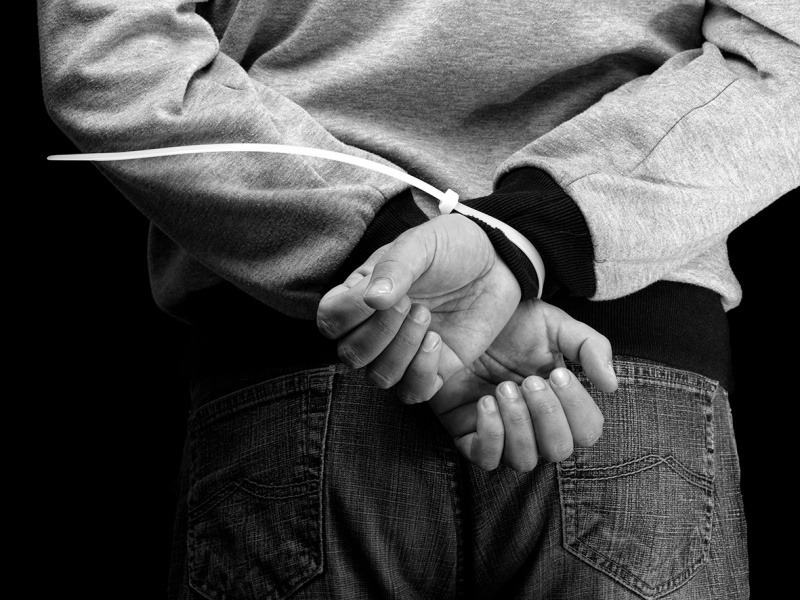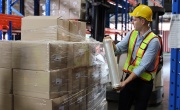Hidden chains: Modern slavery in the recycling sector
Don’t be fooled into thinking slavery ended in the 19th century with the Abolition Act. Abuse of the vulnerable is happening today, right now, in all sectors of the UK – and the resources industry is no exception.

There is a hidden scourge that blights this land, the idea of which is enough to make anyone wince and from which society can no longer turn a blind eye. Across the UK, between 10,000 and 13,000 people are estimated to be working under conditions considered as slavery, with a sizeable portion being found in the waste and recycling sector.
You might think that slavery is simply something that doesn’t happen in the UK, or is a relic from a past we’d rather leave behind. But it is here, and we cannot ignore it. UK charity Anti-Slavery defines someone as being in slavery if they are forced to work through coercion or threats, if they are ‘owned’ or controlled by an employer, if they are dehumanised or bought and sold as property, or if they are physically constrained and have restrictions placed on their freedom of movement.
In response to the rising profile of modern slavery cases in Britain, the UK Government created the Modern Slavery Act in 2015, which consolidated existing legislation and provisions into one act, created an antislavery commissioner and required businesses over a certain size to disclose what they’re doing to prevent slavery in their operations and subsidiaries in a report approved by the board and signed by a director, ensuring accountability. Reporting of modern slavery cases is made through the National Referral Mechanism (NRM), which was set up in 2009 under the UK’s obligations to the Council of Europe Convention on Action against Trafficking in Human Beings.
The waste and recycling sector appears to be fertile ground for those seeking to exploit vulnerable individuals. According to Unseen, a charity dedicated to ‘working towards a world without slavery’ and which runs the Modern Slavery Helpline, there were four cases of modern slavery in the waste and recycling sector reported to its helpline between October 2016 and the end of 2017, involving around 50 victims, in four different police regions, demonstrating a UK-wide problem. Cases in the UK include notable operations in Birmingham and Newcastle (not necessarily reported to Unseen’s helpline), where four men were sentenced to a combined 32 years in prison for running a £1-million operation forcing vulnerable Polish people to work in local recycling plants in the North East. More often than not, those exploited are adult males from EU countries who arrive legally, but are then exploited once they get to the UK.
 Part of what makes modern slavery in the UK so insidious is its invisibility. “When you think about modern slavery in terms of forced labour, it’s certainly not to be envisaged in the same way as the transatlantic slave trade and the American South,” says Darryl Dixon, Director of Strategy at the Gangmasters and Labour Abuse Authority (GLAA), which monitors and investigates cases of modern slavery in the UK.
Part of what makes modern slavery in the UK so insidious is its invisibility. “When you think about modern slavery in terms of forced labour, it’s certainly not to be envisaged in the same way as the transatlantic slave trade and the American South,” says Darryl Dixon, Director of Strategy at the Gangmasters and Labour Abuse Authority (GLAA), which monitors and investigates cases of modern slavery in the UK.
“The chains are invisible and financial,” Dixon explains. “Workers can easily be deluded into believing they need to pay deductions for finding the work, or for insurance or transport or accommodation and slowly the person that may be exploiting them is actually finding them work and then recovering money from them as a commodity, leaving the worker with not much for their essential needs like food and other things. It’s not necessarily the industry itself where it is a problem. It is widespread in those industries where it is predominantly low-paid, low-skilled workers, quite often supplied through intermediaries for a temporary period.”
One part of the waste and recycling industry where we see this happening is the textile recycling sector. There are recent examples, in North Shields and Brighton, of suspected Lithuanian organised crime groups using slave labour to carry out collections of donated bags of textiles, a practice that is ripe for exploitation by these gangs.
“It is a very labour intensive industry,” says Ian Woods, President of the Textile Recycling Association (TRA). “It is the easiest low-entry form of crime you can put people into. You’re not asking them to go breaking into shops or banks, you’re just asking them to be the manpower for a widespread collection routine.”
It is often at the collection stage that we see modern slavery occuring. Commonly arriving from other EU countries, speaking no English but buoyed by the promise of better wages, those pressed into work are vulnerable to exploitation. One example of such treatment can be found in the conviction of Lithuanian Jurate Grigelyte, a 53-year-old woman sentenced to three years in prison in 2014 for trafficking people to work in squalid conditions collecting charity textile bags on behalf of Dreams Come True. Grigelyte brought men and women over from Lithuania with no grasp of English, turned them to work for free to pay back their travel to Bristol and had 12 of them living in a rundown semi-detached house in the east of the city, while threatening them with violence if they disobeyed her or asked for their wages.
A shocking tale, but what is being done? One thing the TRA is working on is a register of approved door-to-door charity collectors to share best practice and push charities and companies that outsource the collecting to smaller companies away from those that may be employing nefarious practices. When can we expect the register to appear? “I’m really hopeful that by the end of this year, if we haven’t actually got the register in place, we’ll be well on the way to doing that,” says Alan Wheeler, Director of the TRA.
Besides that, the TRA provides information, contacts and other intelligence to the relevant police forces for them to investigate, but very often, this falls on deaf ears. “We’ve been banging on about this for ages, but it’s like herding cats!” says an exasperated Woods. “We’re not getting the backup.”
The problem is both one of resources and perceptions. Police forces, like all public services, are feeling the pinch of tightening public purse strings, while officers often underestimate the gravity of criminal operations in textile collections, their attitude characterised by Wheeler as thinking it’s “only a bit of old rag!”.
Aside from the government introducing the 2015 Modern Slavery Act, the GLAA works tirelessly on providing resources to raise awareness of the issue. Most recently, it has produced an information leaflet with the International Labour Organisation (ILO), ‘Spot the Signs’, which has also been published in Polish and Romanian. This aims to raise awareness surrounding what constitutes forced labour to help people ‘spot the signs’, encouraging them to report suspected cases.
 This article was taken from Issue 92
This article was taken from Issue 92However, as alluded to above, responsibility also falls on businesses, who are now obliged by the Modern Slavery Act to prove what they are actively doing to prevent modern slavery in their supply chains – if they have an annual turnover of more than £36 million. With the amount of information released into the public domain regarding what is expected of companies, what to look out for and what to do if one suspects modern slavery may be taking place, “there is no excuse for pleading ignorance”, as Rachel Harper, Helpline Manager at Unseen, says.
And the public has a role to play as well. Unseen’s helpline is available 24/7 to report suspected cases of modern slavery. This is not just available for victims, but also witnesses, and is a particularly useful tool in the instances when people who suspect modern slavery may be occurring don’t want to interfere or make a false accusation. Harper said: “Often when people call in, it could be a situation where they’re being the voice for someone else, who may not be able to themselves share what’s going on and so that can be key.”
When we ask what we can do to stop modern slavery in the waste sector, the answer is simple. The legislation is there, companies know their legal obligations and the issue is becoming more and more prominent in the UK media, serving to increase awareness of this crime. It should be remembered, however, that this is not the responsibility of any one individual or group to stop – it is down to everyone. Slavery is an evil that should have been left behind long ago; we cannot be blind to it, and we must be ready to fight the old battles over again.




